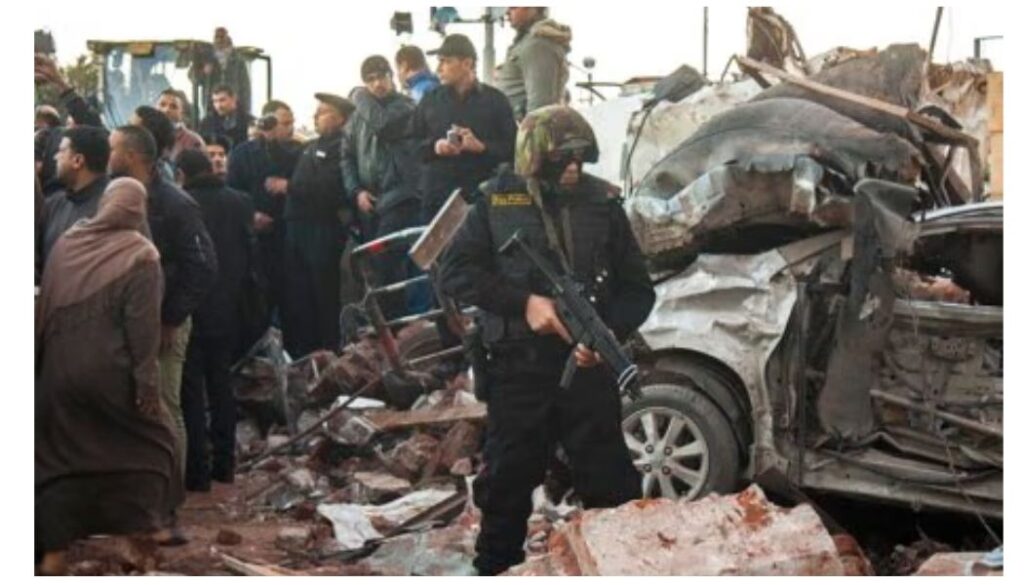Kenya declares Muslim Brotherhood a terrorist group

Kenya has formally designated the Muslim Brotherhood and Hizb ur Tahrir as terrorist organisations, marking a sweeping escalation of its crackdown on extremist groups.
Kenya has formally designated the Muslim Brotherhood and Hizb ur Tahrir as terrorist organisations, marking a sweeping escalation of its crackdown on extremist groups.
The declaration was published in a special Kenya Gazette notice and signed by Interior Cabinet Secretary Kipchumba Murkomen under the provisions of the Prevention of Terrorism Act.
The move makes it illegal to operate, support, or fund either group in the country, while their networks can now be disrupted and their assets frozen.
“The declaration shall remain in force until it is revoked by the Cabinet Secretary or by order of the court,” Muirkomen said in the notice dated September 19, 2025.
This means the ban is indefinite, unless directly overturned.
It is not clear what motivated the government’s decision.
The Muslim Brotherhood, founded in Egypt in 1928 by Hassan al-Banna, is widely regarded as the most influential Islamist movement of the 20th century.
It blends Islamic revivalist ideology with social, educational, and political activism, aspiring to see governments across the Muslim world governed according to Islamic law.
The Brotherhood has inspired affiliates and branches across the Middle East, North Africa, Europe, and beyond.
While it has at times contested elections and participated in democratic politics, it has also been accused of fuelling extremist ideologies and providing the ideological framework for groups such as Hamas, its Palestinian branch, which is already designated a terrorist organisation by many countries.
In recent years, states such as Egypt, Saudi Arabia, the United Arab Emirates, Bahrain, and Russia have outlawed the Brotherhood, citing its alleged role in spreading extremism and undermining state stability.
For its supporters, however, the group is often seen as a vehicle for social reform, welfare provision, and political participation.
Kenya’s decision to join the list of countries proscribing the Brotherhood is therefore a significant step, reflecting both domestic security priorities and alignment with regional counter-terror policies.
100-year-old tree cut down after tragedy claims two brothers in Kirinyaga
Ruto Advisor, David Ndii warns of reduction of payroll jobs
Health CS Duale lists 36 healthcare services not available in Kenya under SHA (LIST)
Kalonzo responds to claims of stepping down from 2027 presidential race
By designating the Muslim Brotherhood and Hizb ur Tahrir, Kenya aims to cut off the ideological and financial pipelines that analysts say nourish radicalisation in the Horn of Africa—particularly among vulnerable youth.
The ban also strengthens Kenya’s ability to monitor and dismantle transnational networks that could otherwise exploit its open political system and charitable sector.
For Kenya, long burdened by the turmoil in neighbouring Somalia, the designations underscore broader momentum in its war on terror.
Officials argue that by pre-emptively outlawing transnational Islamist movements, the state is staying ahead of potential threats rather than merely responding to attacks after they occur.
The move is also likely to bolster Kenya’s international standing with allies who have pushed for tougher measures against global Islamist movements, while reassuring citizens who have endured more than a decade of insecurity.
Kenya has long been on the frontline of the war against terrorism, suffering some of the most devastating attacks in East Africa.
The Westgate Mall siege in 2013, which left at least 67 people dead, scarred the national psyche.
Two years later, the Garissa University massacre killed 148 people, mostly students.
And in 2019, a siege at the DusitD2 hotel complex in Nairobi claimed 21 lives.
All were blamed on al Shabab, the Somalia-based al Qaeda affiliate that routinely launches cross-border raids into Kenya.
A Ruto-Raila ticket would show opposition dust in 2027; Governor Wanga
Former Auditor General Edward Ouko lands role in Ruto’s government
KPLC gives customers alternative for token purchase due to M-Pesa disruption
I don’t fear anything; CS Oparanya responds to calls for his arrest after High Court ruling
Follow us





